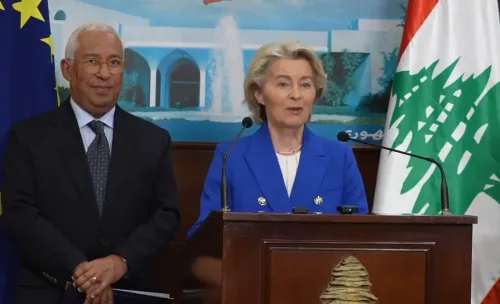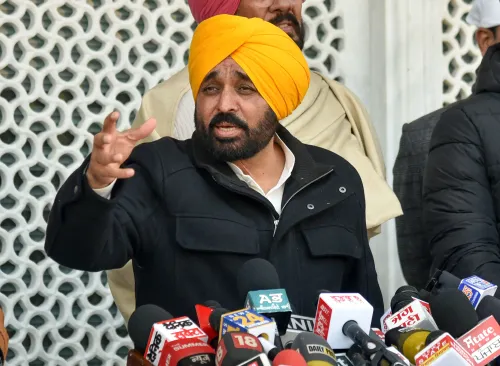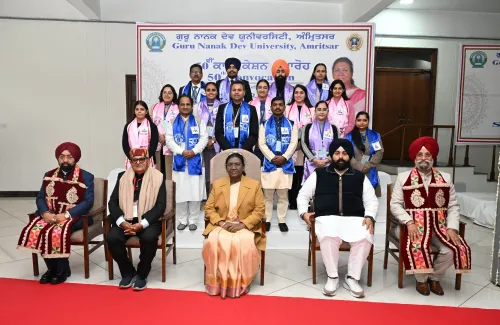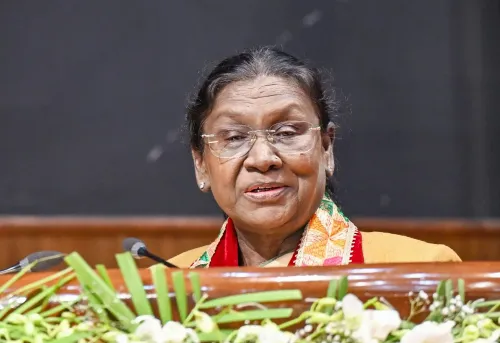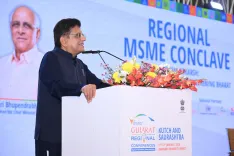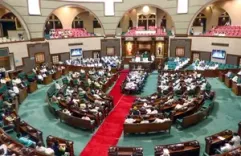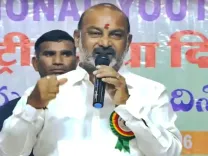Did JP Nadda Just Accuse Nehru of Compromising India's Water Security?

Synopsis
Key Takeaways
- JP Nadda critiques Nehru's decisions regarding the Indus Water Treaty.
- The treaty allocated 80% of Indus waters to Pakistan, raising concerns over India's water security.
- Critics argue the treaty favors Pakistan, given India's growing water needs.
- Recent media reports highlight opposition to the treaty even within the Congress party.
- Prime Minister Modi has labeled the treaty as “one-sided”.
New Delhi, Aug 18 (NationPress) In a sharp political critique, the National President of the Bharatiya Janata Party (BJP) and Union Minister Jagat Prakash Nadda has reignited discussions surrounding the historic Indus Water Treaty of 1960, labeling it one of the “greatest mistakes” made by India’s first Prime Minister, Jawaharlal Nehru.
On his X account, Nadda charged Nehru with jeopardizing India’s water security and national interests by unilaterally granting 80 percent of the Indus basin waters to Pakistan, leaving India with a mere 20 percent.
“The public deserves to know,” Nadda stated, “that when Pandit Nehru finalized the Indus Waters Treaty with Pakistan, he did so without any Parliamentary consultation. It was only presented to the House two months later, and that for a nominal discussion lasting just two hours.”
He characterized this decision as a “national betrayal,” asserting that Nehru’s actions stemmed from personal idealism rather than pragmatic governance.
The Indus Waters Treaty, signed on September 19, 1960, in Karachi, was mediated by the World Bank and delineated the water rights of the six rivers of the Indus basin between India and Pakistan.
India retained authority over the eastern rivers—Ravi, Beas, and Sutlej—while Pakistan was allocated rights over the western rivers—Indus, Jhelum, and Chenab.
Critics have long contended that the treaty disproportionately benefits Pakistan, especially in light of India’s increasing water requirements and agricultural reliance.
Nadda’s comments come after media reports revealed parliamentary archives indicating significant dissent towards the treaty—even from members of Nehru’s own party.
Congress MP Asoka Mehta reportedly described the agreement as a “second partition,” while AC Guha criticized the payment of Rs 83 crore in sterling to Pakistan during a foreign exchange crisis as “the peak of folly.”
A young Atal Bihari Vajpayee, then an MP from Balrampur, also vehemently opposed the treaty, cautioning that conceding to Pakistan's demands would not cultivate true friendship.
“True friendship cannot be built on injustice,” Vajpayee argued. Prime Minister Narendra Modi has also condemned the treaty in recent addresses, labeling it “one-sided” and revealing that certain provisions even prohibited India from de-silting its own dams without Pakistan’s approval—a stipulation he deemed “shocking” and harmful to farmers.
Nadda concluded his remarks by claiming that Prime Minister Modi’s choice to suspend the treaty was a rectification of “yet another serious historical error committed by the Congress party.”
As the BJP amplifies its critique of Nehru-era policies, the Indus Water Treaty has once again emerged as a pivotal issue in India’s political conversation—raising not only questions about historical accountability but also the future of water diplomacy in South Asia.


